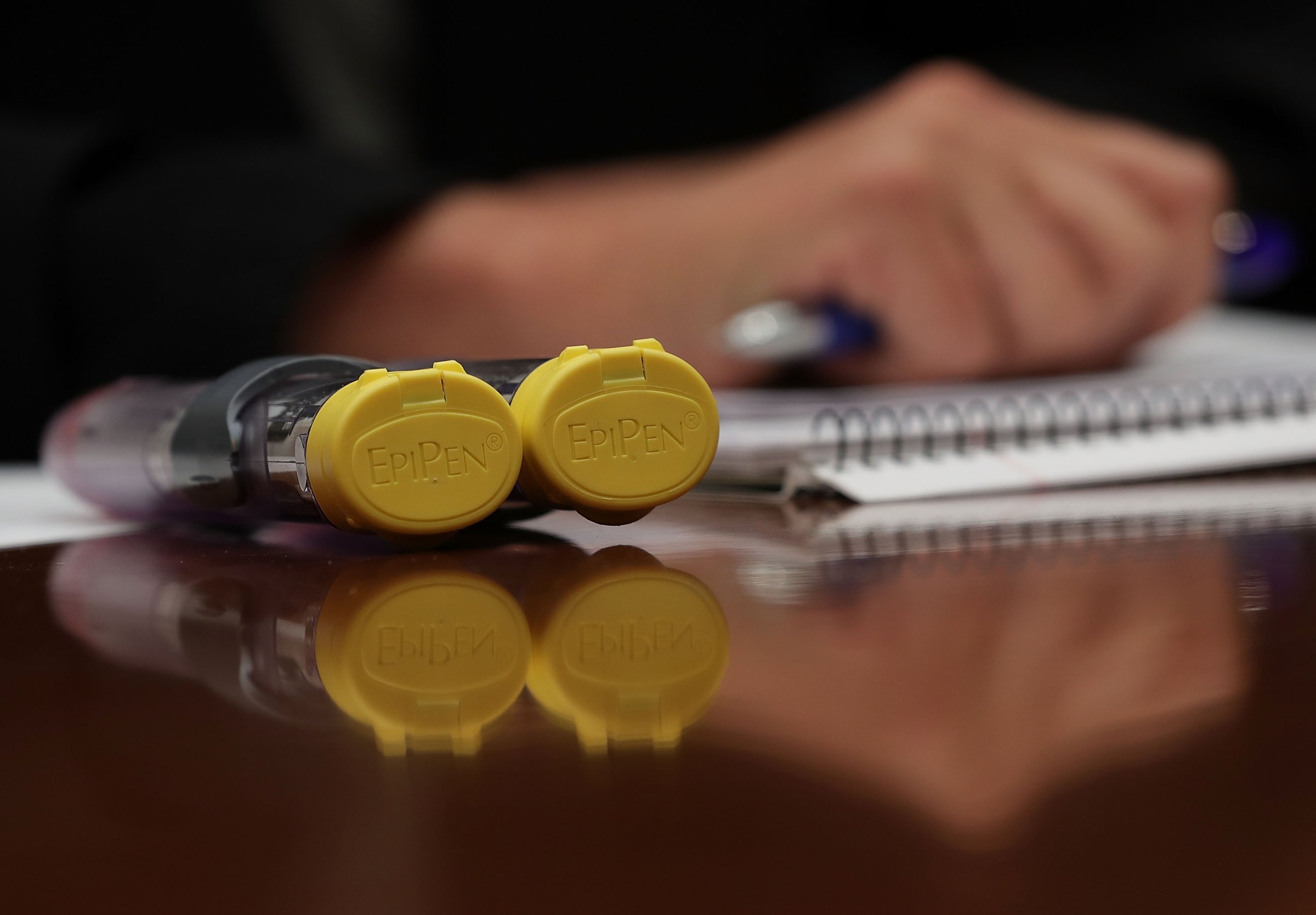
Teva Pharmaceutical Industries announced Tuesday that its much-anticipated generic EpiPen is now available “in limited quantity” in the U.S. — at the same $300 list price as manufacturer Mylan’s authorized generic version.
Teva was in August granted Food and Drug Administration (FDA) approval for the first generic version of the EpiPen and lower-dose EpiPen Jr. The approval was heralded as a win for patient choice, as the generic would offer allergy sufferers an alternative to Mylan’s version of the anaphylaxis-reversing auto-injector, which had over time risen in price to cost $608 for a two-pack. FDA Commissioner Dr. Scott Gottlieb said in a statement at the time that, “This approval means patients living with severe allergies who require constant access to life-saving epinephrine should have a lower-cost option, as well as another approved product to help protect against potential drug shortages.”
While the availability of Teva’s product may help cut into some of the EpiPen shortage issues that have plagued Mylan in recent months, it appears to have fallen somewhat short of Gottlieb’s hopes around affordability. Teva’s $300 wholesale acquisition cost is lower than the $608 Mylan charges for its name-brand product, but Mylan also offers an authorized generic two-pack that, just like Teva’s version, costs $300. The majority of Mylan’s auto-injector prescriptions are filled with its authorized generic, a company representative told TIME.
An authorized generic is an exact replica of a brand-name drug that is simply sold without that branding on its packaging, according to the FDA. A true generic, meanwhile, is a copy of a brand-name drug that is made by another company and may have minor differences in its inactive ingredients.
Representatives from Teva could not immediately be reached for further comment. But in a company release, Brendan O’Grady, Teva’s executive vice president and head of North America Commercial, said the company is “pleased to provide access to Epinephrine Injection (Auto-Injector) for patients who may experience life-threatening allergic emergencies and we’re fully dedicated toward ensuring additional supply in 2019.”
Epinephrine auto-injectors, such as Mylan and Teva’s, combat life-threatening allergic reactions to things like peanuts and bee stings through an injection in the thigh. Epinephrine can reverse these reactions by reducing airway swelling to improve breathing and increasing heart rate and blood pressure.
More Must-Reads from TIME
- Donald Trump Is TIME's 2024 Person of the Year
- Why We Chose Trump as Person of the Year
- Is Intermittent Fasting Good or Bad for You?
- The 100 Must-Read Books of 2024
- The 20 Best Christmas TV Episodes
- Column: If Optimism Feels Ridiculous Now, Try Hope
- The Future of Climate Action Is Trade Policy
- Merle Bombardieri Is Helping People Make the Baby Decision
Write to Jamie Ducharme at jamie.ducharme@time.com